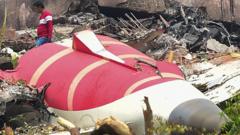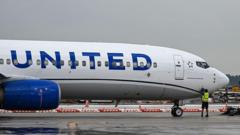In the wake of the devastating Air India flight crash that resulted in at least 270 fatalities, India’s Aircraft Accident Investigation Bureau (AAIB) is weighing whether to send the flight data and cockpit voice recorders abroad for decoding. Last Thursday, the London-bound Boeing 787-8 Dreamliner went down just after takeoff from Ahmedabad, prompting an extensive investigation. While multiple sources have suggested that the "black boxes" might be sent overseas, the Ministry of Civil Aviation stated that any decision will be made only after assessing various technical, safety, and security factors.
India Evaluates Overseas Options for Air India Flight Crash Data Analysis

India Evaluates Overseas Options for Air India Flight Crash Data Analysis
India's investigation into the tragic Air India plane crash may involve overseas analysis of flight recorders to determine the incident's cause.
Investigators have recovered both Enhanced Airborne Flight Recorders (EAFRs), which are crucial for reconstructing the flight's final moments. However, reports indicate potential damage to the recorders from the post-crash fire, raising concerns about data extraction capabilities in India. Former AAIB investigator Captain Kishore Chinta noted the possibility of sending one of the recorders to the U.S. for comparative analysis with the U.S. National Transportation Safety Board's findings, especially as the new AAIB lab in Delhi's operational status for this task remains uncertain.
Air India's chairman has confirmed that one of the engines of the downed aircraft was new, while the other has not needed servicing until December. Following the crash, the airline conducted inspections on 26 of its 33 Boeing 787 fleet, with all planes eventually cleared for service. To enhance safety following the incident, India's aviation authority mandated additional checks, leading Air India to announce a reduction in flights on several international routes. This decision aims to accommodate safety measures and mitigate operational delays caused by airspace closures in the Middle East.
Air India's chairman has confirmed that one of the engines of the downed aircraft was new, while the other has not needed servicing until December. Following the crash, the airline conducted inspections on 26 of its 33 Boeing 787 fleet, with all planes eventually cleared for service. To enhance safety following the incident, India's aviation authority mandated additional checks, leading Air India to announce a reduction in flights on several international routes. This decision aims to accommodate safety measures and mitigate operational delays caused by airspace closures in the Middle East.




















